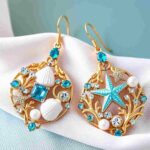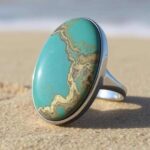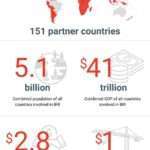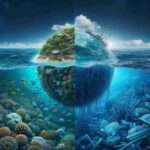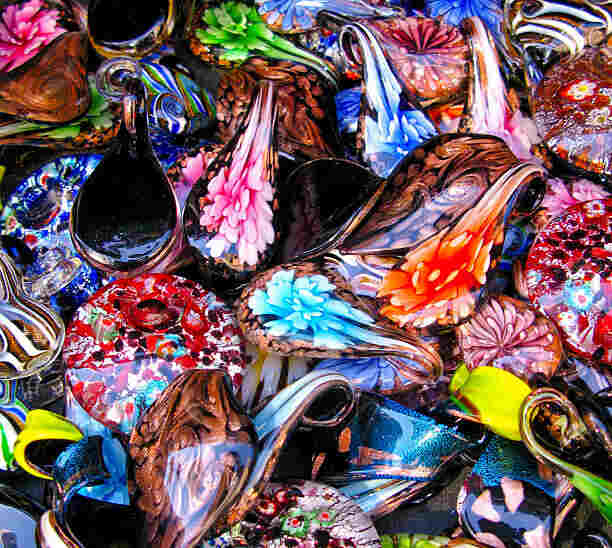7 Ocean Resources || Resources In The Ocean
7 Ocean Resources: Ocean resources refer to the valuable resources found in the world’s oceans, including various minerals, energy sources, seafood, and biodiversity. The world’s oceans are reservoirs of abundant resources, providing sustenance for life on Earth.
The ocean is a large, salty water body that covers about 70.9% of Earth’s surface. The saltiness of ocean water averages 3.5%, with most oceans ranging from 3% to 3.8% salinity. The ocean is home to approximately 230,000 types of marine and aquatic animals. These ocean resources contribute to food, income, and energy, enhancing global living standards. Moreover, the ocean offers valuable resources like oil, natural gas, and energy from wind and waves. Substances found in the ocean may aid scientists in creating new medicines. The ocean also serves as a venue for enjoyable activities such as tourism and sports.
Importance of Resources In The Ocean
These resources are vital for providing food, money, and energy, thus improving lives around the world. The deep sea’s precious minerals, along with fish and other marine life, are indispensable.
In addition, the ocean supplies us with other crucial resources like oil, natural gas, and different energy forms like wind and waves, which can be harnessed as fuel. There are elements in the ocean that could help scientists invent new medications. Besides, the ocean is an excellent spot for leisure activities like tourism and sports. It’s important to preserve these resources so that they can continue to benefit people now and in the future.( Click here to purchase Ocean Sea Animal Figure Toys for Kids )
Oceans are vast sources of resources crucial for sustaining marine life and our planet as a whole. These resources are incredibly valuable as they contribute to social and economic growth. To understand the true importance of ocean resources, let’s examine some key points below.
Biodiversity hotspots
Oceans are crucial for biodiversity, filled with unique ecosystems like coral reefs, mangroves, and kelp forests. These areas host numerous marine creatures and plants, including some undiscovered species. It’s important to protect these rich habitats to keep the ocean’s balance and safeguard our planet’s health for the future.
Economic Value
Ocean resources are economically valuable across the globe. Many industries depend on these resources, which support the livelihoods of countless people. Fishing, for example, provides food and jobs for many communities. Tourism also benefits from the beauty of beaches, coral reefs, and marine life diversity. Furthermore, the ocean is a source of renewable energy, like wave and tidal power, aiding economic development and sustainable energy.
Contribution to Industry
Historically, the ocean has been key to industry progress. Beyond the fishing industry, which provides food security, the ocean boosts tourism. Using renewable energy from the ocean, industries can achieve lasting sustainability.
In summary, the ocean’s biodiversity and economic value are immense. It’s vital to protect and manage these resources for the benefit of marine life, the economy, and our planet’s future.
Values of Ocean Jewelry
Ocean jewelry often carries both aesthetic and symbolic value. Here are some key points that highlight the values of ocean-themed jewelry:
- Symbolic Significance: Ocean jewelry can represent various themes such as strength, change, renewal, and the ebb and flow of life.
- Connection to Nature: Wearing ocean-themed jewelry can symbolize a personal connection to the sea and its calming properties.
- Artistic Expression: Each piece of ocean jewelry can be seen as a wearable piece of art, capturing the essence of the ocean’s beauty.
- Material Value: The materials used, such as precious metals, crystals, and pearls, add to the jewelry’s value.
- Conservation Efforts: Some ocean jewelry brands support marine conservation, adding ethical value to their pieces.
- Craftsmanship: The skill and creativity involved in making ocean jewelry contribute to its uniqueness and worth.
Whether it’s a piece that evokes memories of the beach or one that supports ocean conservation, ocean jewelry holds a special place for many people. If you’re looking to purchase ocean-themed jewelry, consider these values to find a piece that resonates with you.
Challenges In Ocean Resource Management
Managing ocean resources is complex, requiring efforts to mitigate pollution, address climate change impacts, and ensure sustainable use. Collaboration among stakeholders is crucial for developing effective long-term management plans for these invaluable resources.
Challenges in Managing Ocean Resources:
While the ocean provides essential resources like food and employment, inadequate management poses significant risks to its future. Let’s discuss some major challenges in managing ocean resources, including overfishing and pollution.
Overfishing:
Overfishing is a big problem that hurts the balance of life in the ocean, because it takes away too many fish. This happens when people catch fish quicker than they can have babies, which makes the number of fish go down and messes up the way the ecosystem works. Not having good rules and people fishing when they shouldn’t make this worse, and it could cause some types of fish to disappear forever. To fix this, we need to fish in a way that doesn’t harm the ocean and make sure the rules are followed properly.
Pollution:
The ocean is getting dirty because of different things like plastic, chemicals, and oil spills. This dirtiness is very bad for sea creatures and the places they live. Plastic is especially bad because it hurts sea animals and makes the water and food dirty. We need to throw away trash better, use things that can break down naturally, and make sure people follow the rules to fight this dirtiness. Also, it’s important to teach everyone why we should keep the ocean clean to help them make good choices.
By dealing with these problems with good management, we can keep the ocean healthy for the people who will live after us. We must make sure we take care of the ocean so it stays healthy and we can all enjoy it later on.
Renewable Energy Sources From The Ocean
The ocean has a lot of energy sources that we haven’t used much yet, but they could be really good for making clean energy. If we stop using fossil fuels like coal and oil, it will help sea life and the Earth.
There are different kinds of clean energy in the ocean, like the energy from waves and tides, that don’t hurt the environment and can give power to our houses and factories.

Wave Power
The ocean has a lot of energy we haven’t really used yet. Using the energy from waves and tides can give us clean energy that keeps going. This is better than using fossil fuels like coal and oil, which can hurt the environment. The different kinds of energy from the ocean could be a good way to get the energy we need without damaging the Earth.
Tidal Strength
Tidal energy comes from the ocean waves moving because of the moon and sun’s pull. We can capture this energy with underwater turbines where the ocean moves a lot. Tidal energy is steady and we can count on it, which makes it an important part of using energy that won’t run out.
Medicinal Resources In The Ocean
The ocean is big and deep, full of things that make scientists excited and hopeful for new health discoveries. There are special healing substances in sea creatures that could be used for medicine. Scientists are working hard to find amazing things in the ocean that might lead to new medicines for different sicknesses.
Marine Pharmaceuticals
Sea creatures have developed special chemicals to survive, and some of these can be used as medicine. Tiny sea life like bacteria, algae, sponges, and sea squirts could help make new drugs. They make substances that can fight swelling, cancer, germs, and viruses.
Coral reefs are especially exciting for medicine. They’re not just pretty; they have powerful healing substances. Sponges and soft corals in the reefs make stuff that can protect against damage, viruses, and swelling.
Coral Islands
Coral reefs are full of life and very important for nature. They are also interesting because they might help us find new medicines. Some sponges in the reefs make special things that could fight cancer by stopping cancer cells from growing. This could lead to better ways to treat cancer.
Tiny bacteria living with corals are also important. They make things that could become antibiotics, which we need to fight germs that don’t get killed by the usual antibiotics.
To sum up, the ocean could be a treasure chest of healing resources. If we keep studying and exploring, we might find secrets in the sea that lead to new medicines. Looking into the medicines from the sea and coral reefs could help us find cures that change how we treat diseases. Let’s go on an adventure to learn more about the ocean and the amazing things it might have for us.
Manganese Nodules
Manganese nodules are groups of little rocks scattered on the bottom of the ocean. These rocks have a lot of important minerals like manganese, iron, nickel, and cobalt. These minerals are very useful for many businesses.
Cobalt-Rich Crust
Cobalt-rich crusts are layers found on big underwater hills known as seamounts. These layers have a lot of cobalt, which is very important for making batteries for electric cars and storing energy from renewable sources.
Technological Innovations Resources In The Ocean
New technology has changed the way we explore the ocean’s treasures. With modern tools and ways of doing things, we’re finding better ways to use and protect the ocean’s riches. Cool inventions like self-driving underwater robots (AUVs) and pictures from space have given us a whole new view of what the ocean has to offer.
Autonomous Underwater Vehicles
Equipped with sensors, AUVs collect precise data underwater, helping us map valuable resources more accurately.
Satellite Imaging
Satellite pictures give us views from above the ocean. This helps us spot different things in the ocean and what it offers from space. These new tech developments have changed the way we look for and use what the ocean has to give us.
Sustainable Practices in Ocean Resource Management
People are worried about the ocean’s health, so they’re starting to use careful ways to manage its resources. These methods help us get what we need without harming the ocean’s future. Let’s look at some careful ways people manage ocean resources.
Marine Protected Areas
Marine Protected Areas (MPAs) are really important for keeping the ocean’s variety of life safe and healthy. They protect special places in the sea, save animals that are in danger, and help fishing stay good for the future. MPAs are like safe places where sea creatures can do well and the sea can get better. By making and taking care of MPAs, we can use the ocean’s gifts the right way for a long time.
Aquaculture
Aquaculture, or fish farming, is a good way to make seafood. It’s about growing fish, shellfish, and water plants in places we can control, like ponds or farms in the sea. By farming carefully and not hurting the environment too much, aquaculture gives us a steady supply of seafood. This helps take some pressure off fish in the wild. New technology in aquaculture makes it work better, handle waste well, and make fish food that’s better for the planet.
International Cooperation for Resources In The Ocean Management
Working together worldwide is key to taking care of our ocean’s wealth. Countries can better tackle the problems and chances linked to the sea by joining forces. This teamwork helps share tools, know-how, and skills, making ways to look after marine wealth better.
United Nations Sustainable Development Goal 14
The United Nations’ Goal 14 is all about protecting and using the ocean and its riches in a way that will last. It highlights how important it is for countries to work together to reach this goal. It points out that we need everyone to pitch in to protect and look after the sea for the people of tomorrow.
Global Partnership
It’s really important to work together around the world to make sure we’re using the sea’s treasures in a lasting way. Governments, global groups, non-profits, and businesses need to work hand in hand to solve the tricky problems the ocean throws at us. By working as a team, they can share the smartest ways to do things, new tech, and resources, which leads to better and more complete ways of managing the ocean’s resources.
Frequently Asked Questions Of 7 Ocean Resources
Question 1: What are the main ocean resources?
Answer: Ocean resources encompass fisheries, minerals, energy, and biodiversity, providing valuable economic and environmental benefits. These resources play a crucial role in influencing life and industry worldwide.
Question 2: How can ocean resources be managed sustainably?
Answer: Sustainable management involves protecting marine ecosystems, reducing pollution, and controlling resource extraction to ensure long-term availability and ecological balance. Collaboration between government, industry, and communities is essential.
Question 3: What are the economic benefits of ocean resources?
Answer: The ocean’s treasures are a big part of the world’s money-making activities. Jobs like fishing, moving goods by sea, welcoming tourists, and making energy are all important. These jobs not only give people work but also help countries trade with each other and grow their economies.
In Conclusion:
To put it simply, our planet’s seas are full of valuable things that help keep life going. The sea gives us a lot, like fish to eat, energy, minerals, and healing stuff. There’s a lot we can discover and create with what the ocean offers. If we use these gifts wisely and learn about them, we can make sure our world and we will be okay for a long time.
We should really value and take care of the amazing gift that is the ocean.






